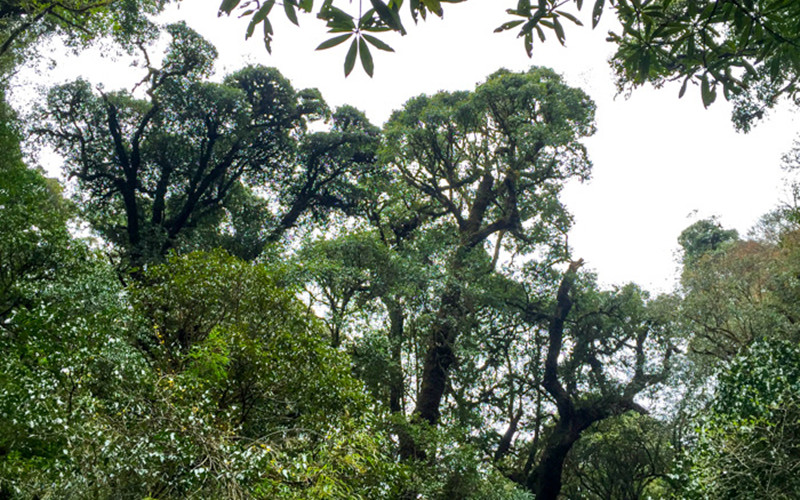Qianjiazhai No.1 Ancient Tea Tree of Ailao Mountain in Zhenyuan County, Puer
Qianjiazhai Village No.1 Ancient Tea Tree of Ailao Mountain in Zhenyuan County, Puer (云南镇沅哀牢山千家寨1号古茶树)
The World’s Largest Ancient Tea Tree
The world’s largest ancient tea tree is located in the primeval forest of Ailao Mountain in Qianjiazhai, Zhenyuan County, Yunnan Province, at an altitude of over 2,000 meters. Known as the Qianjiazhai No. 1 Ancient Tea Tree, it stands an impressive 25.6 meters tall. Experts estimate that this tree is over 2,700 years old, dating back to the Spring and Autumn period and the Warring States period in Chinese history.
Discovery and Recognition
Local residents have long been aware of the presence of wild ancient tea trees in the area, but these resources were not seriously developed or utilized until the 1970s. It was during a government-organized survey for a proposed reservoir in Qianjiazhai that the ancient tea forest was officially discovered. However, the specific identification of the Qianjiazhai No. 1 tree did not occur until 1991.
In 2001, this ancient wild tea tree was recognized by the Shanghai Great World Guinness Headquarters as the largest ancient tea tree, receiving the title of “Great World Guinness Record.” However, for researchers studying the origin and survival patterns of tea trees, the significance of Qianjiazhai No. 1 extends far beyond its size.
Protection and Preservation
In the same year, October 2001, a tea company “adopted” this tree. To protect this millennia-old treasure, the company erected an iron fence and built stone walls around the tree. Additionally, they hired personnel to guard the tree in shifts year-round, ensuring its safety and preservation.
Importance and Impact
The Qianjiazhai No. 1 Ancient Tea Tree is not only a marvel of nature due to its age and size but also a crucial subject for scientific research. Studying this tree provides valuable insights into the history, evolution, and ecological adaptations of tea plants. The protection measures taken demonstrate a commitment to preserving this significant botanical heritage for future generations, underscoring the cultural and historical importance of tea in the region.
The discovery and subsequent safeguarding of the Qianjiazhai No. 1 Ancient Tea Tree highlight the rich biodiversity of Yunnan’s forests and the profound connection between the local communities and their natural environment. This tree stands as a testament to the enduring legacy of tea culture in China and its significance to both historical research and modern tea cultivation practices.













